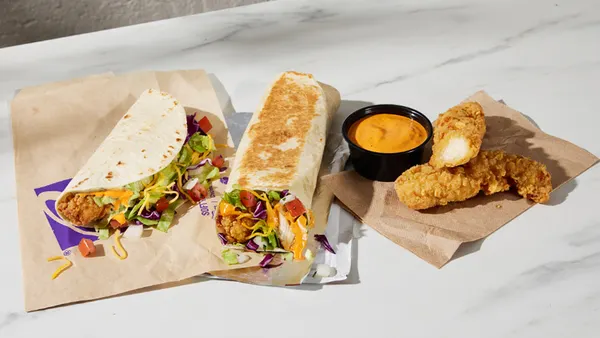Dive Brief:
- Following the success of its four-year-old Lisbon market, Time Out will open similar food halls featuring local restaurants, communal tables and a presentation stage in Miami, New York City, Boston, Chicago and Montreal throughout 2019, Restaurant Hospitality reported. The expansion begins in Miami, where the 17,500-square-foot location will house a multitude of cuisines, from Mexican and Peruvian to Korean, American and Cuban.
- The media company, which creates dining and entertainment guides for various cities, plans to let its editors offer input into which local talent may be the best fit for its specific Time Out Markets. Selected chefs can opt to join the food hall for one year (or more) in exchange for a percentage of sales.
- According to USA Today, Time Out won a city-run contest in 2010 to take over the 19th century Mercado da Ribeira building in Lisbon. The food market now attracts more than 3.5 million visitors with projected 12% annual growth, making it the most visited site in the city.
Dive Insight:
America's obsession with food halls shows little sign of slowing down as Time Out looks to expand its Markets brand into the United States. Since Cushman & Wakefield first tracked "open eatery" concepts across the country in 2015, the number of food halls more than doubled from 70 to 180, almost 40% in 2016 alone. Time Out could be in good shape because of the about 100 new food halls opening by 2020, only three, so far, have failed.
While it took Time Out four years to catch its stride in Portugal, the magazine is using that experience to try to sharpen its business strategy as it moves into Miami. The company may also be hoping its reputation as dining critics will attract chefs and customers. It is not, however, the only media outlet adding food halls to its repertoire. Munchies, the food publication of Vice Media, will debut a food hall inside a massive new project in northern New Jersey. It, too, will offer space for both vendors and culinary presentations.
Food hall mania has benefited from the blossoming of foodie culture and a shift toward multi-use retail developments. While traditional retail models in every industry have suffered at the hands of a recession and online shopping, food halls have exploded. The concept attracts a diverse array of interested parties: investors desiring promising foot traffic, city officials looking for ways to boost tourism, chefs wanting to grow their footprint and food trucks seeking a less expensive, low-risk brick-and-mortar. Upscale food halls tick all those boxes.
But what makes a successful food hall or market successful? There is no typical prototype. Some follow the tight quarters of countertops and cocktail tables common in Europe. A few have on-site butchers, cheesemakers and bakeries, while others only sell ready-to-eat meals. Time Out's communal tables, resembling a beer hall, offer a different experience. Proponents see the open-air vibe as reminiscent of public squares and outdoor markets — a place for community and conversation. In addition to providing customers a ton of variety under one roof, management doesn't have to rely on one idea to succeed.
That flexibility, though, can also lead to administrative headaches like short-term leases and investor fluctuation. In addition, sometimes the warehouse-like spaces are harder to catch on depending on the area's demographics. At Latinicity in downtown Chicago, one of about a dozen such markets citywide, restaurateur Richard Sandoval has struggled to grow dinner business in a predominantly lunch-crowd area.
Another hurdle Time Out will also have to contend with is the fierce competition in the cities it plans to open up shop, not only for customers but chefs as well, who may already be booked. In New York, for example, Eataly has owned much of the game since it opened its upscale European market in the city. Even mid-sized towns such as Raleigh-Durham and Birmingham and some suburbs have their own food markets. Time Out's success may depend heavily on the caliber of chefs and projects it can attract.












